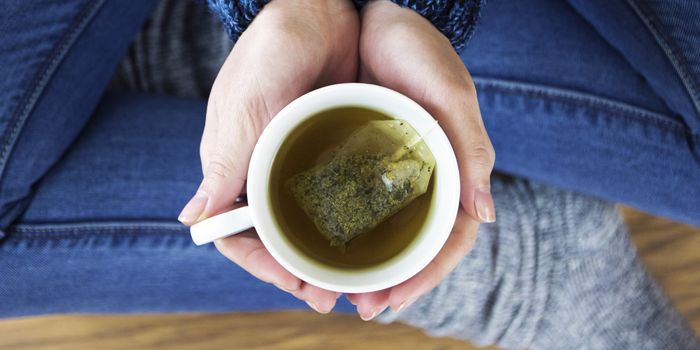Time for Tea

Whilst being unique to human beings tea drinking knows no cultural or geo-political boundaries. It is a ritual, a habit and a pleasure in peoples across the globe. And as luck would have it drinking tea is not just enjoyable, but also beneficial to health. Just to clarify that in this blog we are focusing on Camellia sinensis or Chinese tea, and Camellia assamica aka Indian or Assam teas. These include black tea, white tea, green tea, oolong, pu-erh and yellow tea. Herbal and fruit teas also have their benefits but more of that another time. For now, let’s look at the benefits of a nice cup of tea:
Drink tea and protect your brain
Drinking tea reduces the risk of cognitive impairment in older people by 50 per cent and as much as 86 per cent for those who are genetically at risk of Alzheimer’s disease. The neuroprotective role of tea drinking on cognitive function includes tea brewed from tea leaves, such as green, black or oolong tea. It is believed that the benefits of tea consumption are due to the bioactive compounds in tea leaves such as catechins, theaflavins and L-theanine. These have anti-inflammatory and antioxidant potential that may protect the brain from vascular damage and neurodegeneration (1,2)
Tea drinking, weight and metabolism
Tea has been shown to reduce body weight, alleviate metabolic syndrome, and prevent diabetes and cardiovascular diseases in animals and humans. These benefits seem to kick in when the level of tea consumption is around three to four cups or more per day. Green tea is more effective than black tea with high levels of catechins that improve fat oxidation and accelerate energy expenditure (3,4).
Two possible mechanisms for this include:
(i) decreasing absorption of lipids and proteins in the intestine, thus reducing calorie intake.
(ii) activating substances that decrease gluconeogenesis and fatty acid synthesis and increase catabolism (break down of body tissue), leading to body weight reduction (3,4).
Drink tea to protect your bones
It turns out that tea consumption may be beneficial for bone mineral density especially in the lumbar spine, hip and neck (5).
Drink tea to stave off flu
Experimental studies have reported that the catechins in tea have antiviral activities. In addition gargling with tea may help prevent infection with the influenza virus (6).
Tea and cancer
Higher tea consumption may have a protective effect on thyroid cancer (7). Higher green tea consumption reduces the risk of prostate cancer with 7 cups a day being effective (8), whilst 4 cups of green tea a day may have a preventive effect against liver cancer (9).
All things in moderation
Obviously it’s not advisable to overdo the tea drinking. Tea contains caffeine which may interfere with sleep, and tannins that can bind to iron and reduce its absorption. For these reasons it may be advisable to avoid drinking tea in the evening or immediately after meals.
The Perfect Brew
Some tips for the perfect cuppa:
- Use freshly boiled water.
- Leave the tea to brew for 2-3 minutes. The longer you leave it to brew the more bioactive compounds you’ll get and the stronger the taste.
- The lower the pH of the water the more bioactives will be released into the water. Tap water is more or less neutral but adding a squeeze of lemon during brewing may increase the release of the beneficial compounds.
- Some studies suggest that adding milk to tea may affect the absorption of the bioactive compounds but others show the same levels of antioxidants reach the blood after drinking tea with or without milk.
- Loose leaf teas tend to be made with higher quality tea leaves. That said the leaves in tea bags are cut smaller and this may increase the extraction of nutrients due to increased surface area.
So, put the kettle on and settle down for a nice cup of Rosie Lee.
References
- 1. J. Nutr Health and Aging. 2016; 20 (10):1002 Tea consumption reduces the incidence of neurocognitive disorders: Findings from the Singapore longitudinal aging study. Feng L, Chong M, Lim W et al.
- 2. PloS one. 2016 Nov 8;11(11):e0165861. Meta-Analysis of the Association between Tea Intake and the Risk of Cognitive Disorders. Ma QP, Huang C, Cui QY et al.
- 3. Mol Nutr Food Res. 2016 Jan;60(1):160-74. Mechanisms of body weight reduction and metabolic syndrome alleviation by tea. Yang CS, Zhang J, Zhang L et al.
- 4. J Nutr Biochem. 2016 Nov 2;43:1-10. Physiological effects of epigallocatechin-3-gallate (EGCG) on energy expenditure for prospective fat oxidation in humans: A systematic review and meta-analysis. Kapoor MP, Sugita M, Fukuzawa Y, Okubo T.
- 5. Medicine (Baltimore). 2017 Mar;96(12):e6437. Updated association of tea consumption and bone mineral density: A meta-analysis. Zhang ZF, Yang JL, Jiang HC et al.
- 6. BMC Public Health. 2016 May 12;16:396. Effect of gargling with tea and ingredients of tea on the prevention of influenza infection: a meta-analysis. Ide K, Yamada H, Kawasaki Y.
- 7. Int J Clin Exp Med. 2015 Aug 15;8(8):14345-51. Association of tea consumption and the risk of thyroid cancer: a meta-analysis. Ma S, Wang C, Bai J et al.
- 8. Medicine (Baltimore). 2017 Mar;96(13):e6426. Green tea and the risk of prostate cancer: A systematic review and meta-analysis. Guo Y, Zhi F, Chen P et al.
- 9. Nutr Cancer. 2017 Feb-Mar;69(2):211-220. Green Tea Consumption and the Risk of Liver Cancer: A Meta-Analysis. Ni CX, Gong H, Liu Y et al.